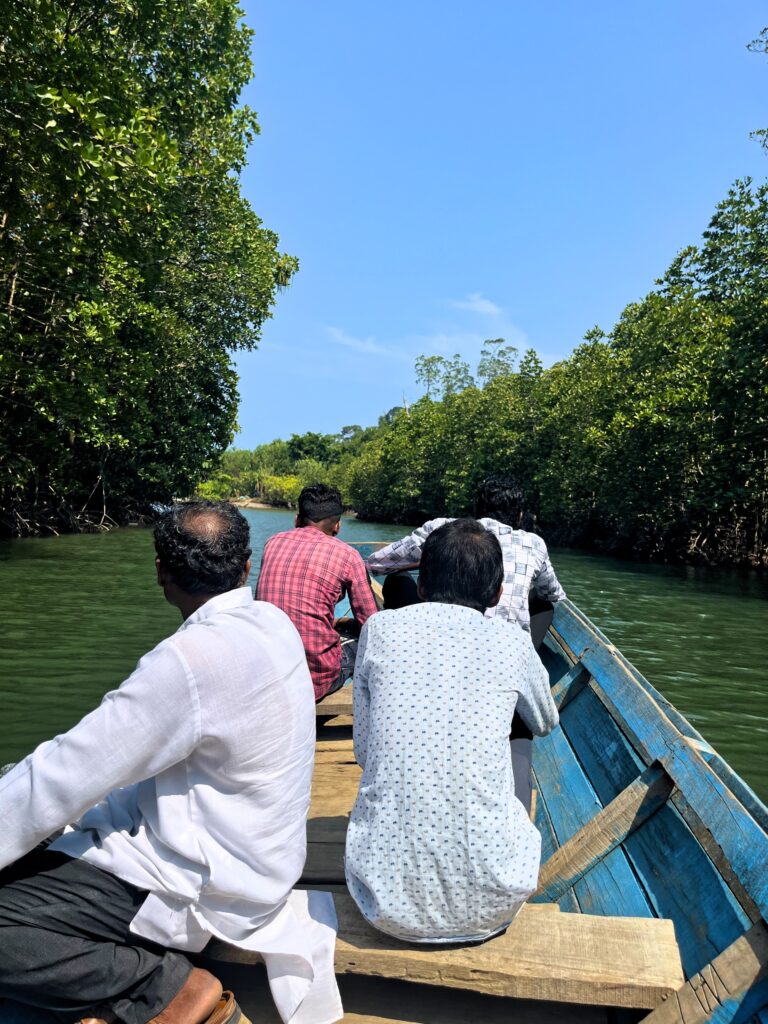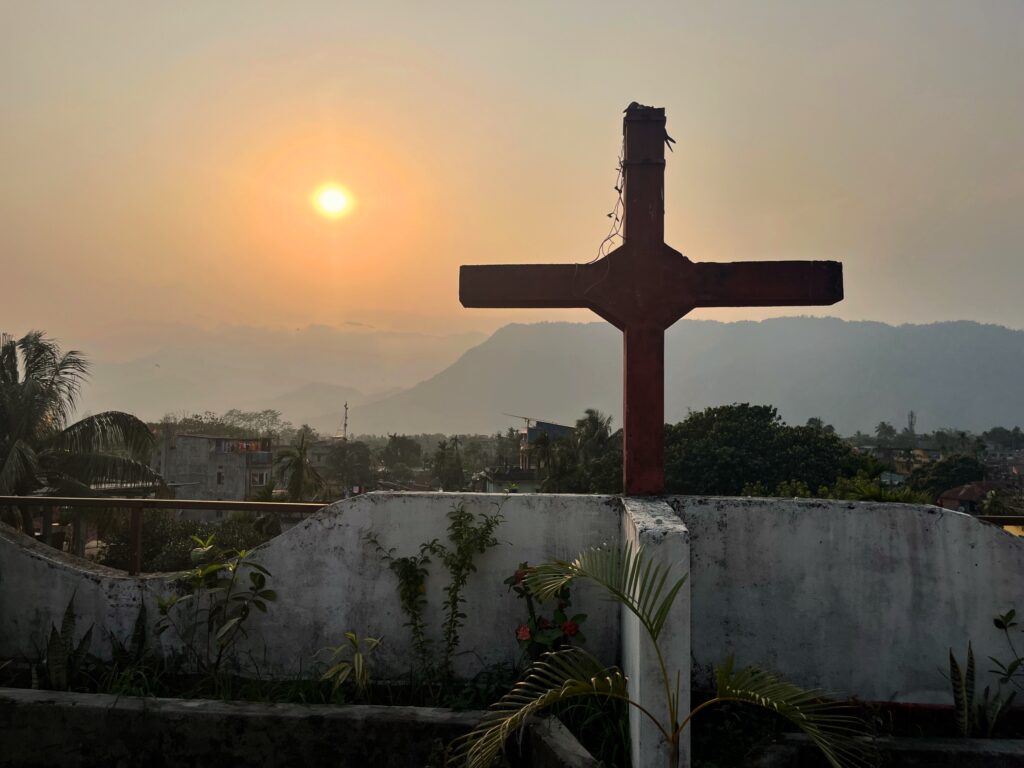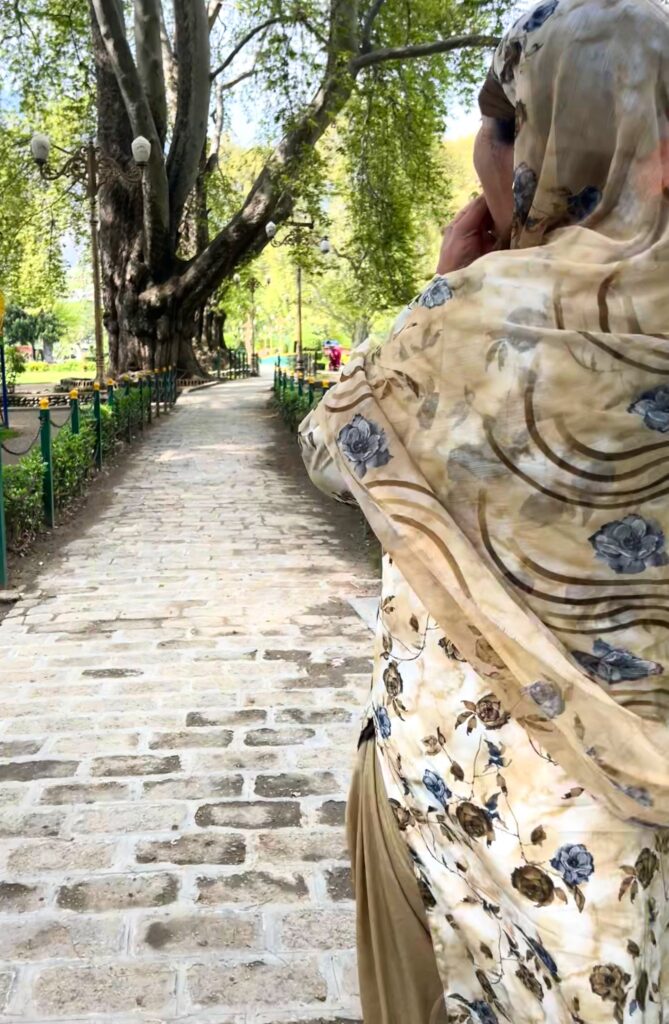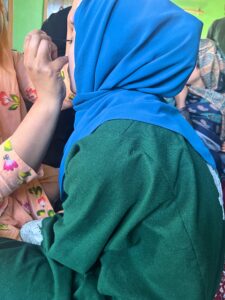Dear Friends,
In April, I had the privilege of visiting with many of our Indian and Bhutanese leaders.
After having visited several of their churches and places of ministry over a few days, I gathered with 15 of the 20 leaders who we support in the Andaman Islands (the other five were in too remote of areas at the time to be able to join us). We sang four hymns – each in a different language – Tamil, Telugu, Hindi and Bengali. It was a beautiful representation of the diversity of the Islands, and of the leaders who we support there.
 The Andaman Islands are sometimes referred to as “Mini India”. Although lying far closer to Indonesia and Myanmar, The Andaman and Nicobar Islands are a Union Territory of India. Unlike most of the pastors and missionaries HB supports, who live and serve in the communities or states they grew up in, the majority of the leaders we support in Andaman have moved there from mainland India to do ministry. Not only do they come from different linguistic and cultural backgrounds, they come from several different denominations and theological perspectives.
The Andaman Islands are sometimes referred to as “Mini India”. Although lying far closer to Indonesia and Myanmar, The Andaman and Nicobar Islands are a Union Territory of India. Unlike most of the pastors and missionaries HB supports, who live and serve in the communities or states they grew up in, the majority of the leaders we support in Andaman have moved there from mainland India to do ministry. Not only do they come from different linguistic and cultural backgrounds, they come from several different denominations and theological perspectives.
Each month, these men and women gather to worship and pray together, share updates, solve problems, make decisions about finances, and generally have fellowship. Pastor Ram*, our director in the region, emphasized that they are able to encourage and challenge each other because of their differences in opinion and experience.
In this gathering, I asked them what they found to be uniquely challenging in the Andaman Islands compared to mainland India. There was consensus that it was the language and cultural differences. I was so impressed with how many of these leaders – who range from ages 25 to 65, were actively learning new languages to be able to connect with more people. But they also rely on one another to follow up with those they can’t communicate with. It was inspiring to see the daily commitment of becoming all things to all people (1 Corinthians 9:22).
You can support the work of our leaders in the Andaman Islands here.
Back on mainland India, I traveled north to visit with our Bhutan leaders near an Indo-Bhutan border. I had such a good time discussing their upcoming plans for economic development projects that we are able to fund because of your support. Next to Myanmar, of all the countries where we work, the rising cost of living has impacted Bhutan the most. So, the urgency of helping leaders to be able to self-support has grown. We will hopefully start with five or six projects this year, see how they progress, and support another group next year.
 In this border town, our Bhutan leader, along with others also runs a K-12 school and a Bible School. One of the specific things I love about the Bible school is that it trains believers coming from Buddhist communities. Many seminaries and Bible schools in India understandably have an emphasis on training people for ministry among Hindus and Muslims. However, speaking to Buddhists is a very different experience for many reasons, one of which is that they don’t have a built in belief of God. So, it’s a completely different starting place when sharing the Gospel. This school is also working to build up lay church leaders, not necessarily only people intending to do full-time ministry. Both of these approaches are filling a vital need in this particular region. If you’re interested in supporting the work, it’s only $50 a month to sponsor a student! Click here to give!
In this border town, our Bhutan leader, along with others also runs a K-12 school and a Bible School. One of the specific things I love about the Bible school is that it trains believers coming from Buddhist communities. Many seminaries and Bible schools in India understandably have an emphasis on training people for ministry among Hindus and Muslims. However, speaking to Buddhists is a very different experience for many reasons, one of which is that they don’t have a built in belief of God. So, it’s a completely different starting place when sharing the Gospel. This school is also working to build up lay church leaders, not necessarily only people intending to do full-time ministry. Both of these approaches are filling a vital need in this particular region. If you’re interested in supporting the work, it’s only $50 a month to sponsor a student! Click here to give!
I spent my final week on this trip in a region of northern India. It was stunningly beautiful. In this particular area, the majority religion is Islam. There are several stories I could tell from this time about a house church I worshipped with, or how serious the persecution is in this area, or the economic development projects our leaders have planned. But what stood out to me, more than anything, was a particular illustration of why local leaders are so crucial to support.
 One of our leaders – Priscilla* – has always had a burden for reaching Muslim women in her city and surrounding villages who are nearly never out of sight of their father, husband, or brothers. Priscilla also knows the pain of being abandoned by her husband and she knows that if she had not had a trade skill to earn money, she and her children would have been destitute. That led to a passion to teach women how to be able to provide for themselves.
One of our leaders – Priscilla* – has always had a burden for reaching Muslim women in her city and surrounding villages who are nearly never out of sight of their father, husband, or brothers. Priscilla also knows the pain of being abandoned by her husband and she knows that if she had not had a trade skill to earn money, she and her children would have been destitute. That led to a passion to teach women how to be able to provide for themselves.
Through a friend, she identified a specific village to begin makeup artist training. The women, all between 18 to 35 years of age, are not allowed to leave their homes without permission from whichever man in their family is in charge. If they want to visit their sick mother down the road or set up a play date for their children – their husband has to give permission. If they’re unmarried, their father or brother has to approve of them going to the market or to visit a friend. Although they often get the permission, when asked what would happen if they went out without it, the women all agreed that they would be punished. I didn’t push them to expand on what punishment meant for them, but Priscilla confirmed to me after that many of the women are regularly beaten.
In order to be allowed to do this training, Priscilla had to ask permission from the head of each house in the village, even the homes that did not have women attending the training. And she had to tell them that this was just a gathering to teach these women about makeup, which they could use for fun or for weddings – she absolutely could not tell them she was training them to be able to earn money from this skill. For the first couple of months of the training (which had about 15 women), a man from the community had to sit in on the meetings to make sure she wasn’t influencing the women with any “modern” ideas. Priscilla gained the trust of the community and eventually, within the six month training, the chaperone stopped attending. 
Priscilla has now done three of these trainings in different villages, teaching about 50 women. Most of the women have worked enough to start saving some money of their own, which their families are unaware of. When asked what they use it for – some said they are saving it for an emergency. A couple of the women have been able to leave abusive marriages. Tellingly, many of them said that they use the funds to pay for the things their children really need – medicine, clothes, etc., that their husbands deem unnecessary and, therefore, refuse to pay for.
Of course, Priscilla cannot be direct in sharing the Gospel with these women. However, she uses a questionnaire at the beginning of the class to gauge what the women believe about faith. This has allowed her to gently open the door to more one-on-one conversations with them. And several of the women have now put their trust in Jesus and are being discipled by Priscilla.

Priscilla’s questionnaire started a lively conversation with the women
We’ve shared this in the past, but my favorite quote from any of the women who went through this project is still this comment that one of the women, Jaheel*, made to Priscilla towards the end of her training:
“Ma’am, if I will have a girl child in future, I will allow her to make her life successful. I will allow her to laugh and to express her feelings.”
It seems so simple. Teach women a marketable skill. While gathered, share the love and truth of Jesus. But from finding the best deals on supplies, to understanding community dynamics and politics, to gauging the risk of speaking directly about Jesus, nothing is straight forward. Priscilla has to be wise as a serpent and innocent as a dove. She has to be street smart. She has to understand the culture she’s serving in. She has to have empathy for the lives these women lead. She has to be skilled enough to teach. And she is all of these things. It is an honor to come alongside this work that she is uniquely positioned to do so well.
Thank you for giving and praying, making it possible for us to support this work, and so much more!
You can support Priscilla’s work by supporting Women’s Empowerment by clicking here!
In Christ,
Kate,
Executive Director
*Names changed for security